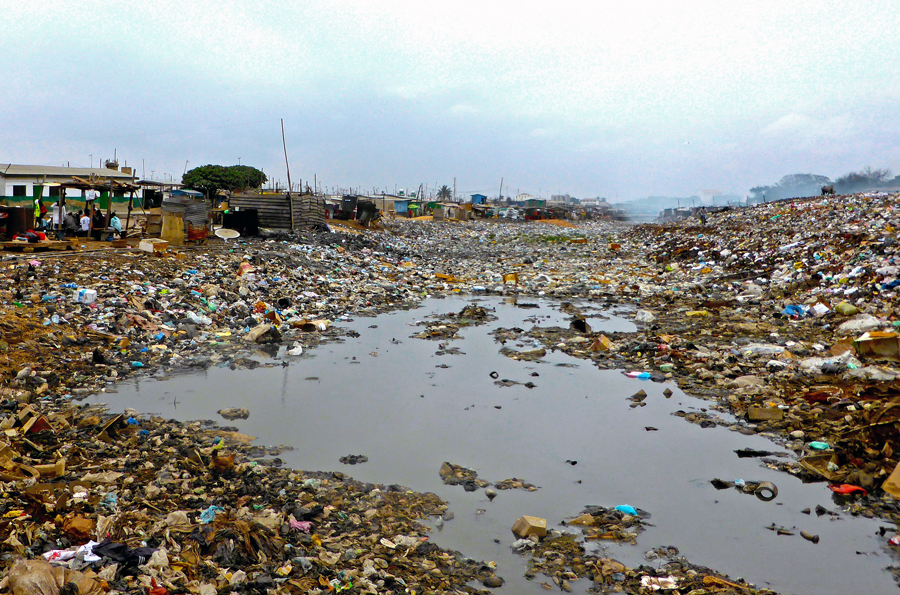The Government of Ghana (GoG) and the United Nations Development Programme (UNDP) are jointly hosting an investment forum as part of activities marking this year’s Africa Climate Week which takes place from March 18 to March 22.
Stakeholders from international/ development organizations, government agencies―the Ministry of the Environment, Science, Technology and Innovation(MESTI), civil society organizations and the academia are participating the two-day forum, which opened in Accra, yesterday.
The forum is expected to discuss ways of mobilizing private sector investment for projects that will deliver solutions to the negative impacts of climate change.
Some of the topics to be discussed are: Scaling the need and investment opportunity for low carbon transition; Increasing with innovative finance; and Accelerating private sector investment.

The others are: Adapting to climate change― resilience, security and finance; and Climate action and SDGs―Engaging enterprises to advance Nationally-Determined Contributions (NDCs).
Addressing participants at the opening of the forum, Madam Patricia Appiagye, Deputy Minister, MESTI, disclosed that to combat the negative impacts of climate change globally, two global agreements―the Sustainable Development Goals (SDGs ) 2030 and the Paris Climate Agreement―were adopted.
Madam Appiagye indicated that GoG ratified the Paris Climate Agreement and developed the Co-ordinated Programme of Economic and Social Policies (CPESDP) 2017-2024 which fully embraced Ghana’s commitments in the Nationally-Determined Contributions (NDCs) to the Paris Climate Agreement and with linkages to the SDGs and the Africa Union’s Agenda 2063.
She said to translate the policy into real actions to better lives and protect the climate, a Nationally-Determined Implementation and Investment Plan (NDIIP) had been developed.
The Plan, she said provided a framework for translating emission reduction commitments into a road-map as well as practical options for achieving emission reduction obligations in a manner that would promote economic growth and, at the same time, ensure that the choices made were cost-effective and transformatory, with a positive spin-off on society.
Madam Appiagye identified seven broad areas―Sustainable land use, including food security; Climate resilient infrastructure; Equitable social development; Sustainable mass transportation; Sustainable energy security; Sustainable forest management; and Alternative waste management―which, she said, were expected to help Ghana attain the desired low-carbon climate resilience.
Ms Gita Honwana Welch, Resident Representative, UNDP, noted that a bold climate action required a strong political will, sufficient financial deployment and the understanding that climate change should be addressed in a wholesome and strategic manner.
Ms Welch described Ghana as a champion in engaging the private sector in its approach to climate change and urged GoG to take critical investment decisions to help increase finance flow in order to unlock the low-carbon development pathways.
In a statement, Mr John Pwamang, Acting Executive Director, Environmental Protection Agency (EPA), noted that it was Government’s responsibility to lead financial mobilization efforts for climate action, with the active participation of the private sector and development partners.
Mr John Pwamang disclosed that the Government was already implementing climate change programmes, with a view to promoting renewable energy, reducing deforestation, promoting clean cooking stoves, pursuing low carbon electricity generation, building the resilience of farmers in the Savannah dry lands and investing in sea defence infrastructure.
Mr Pwamang said Government had invested US $ 13.2 billion in the expansion and production of natural gas; established about 192, 253.19 ha of tree plantations and, recently, employed 20,000 youth to plant about 10 million tree seedlings; deployed 1,000 improved cook stoves in 100 communities and disseminated 1.2 million stoves to households.
Furthermore, he said, Government had increased the country’s installed renewable energy capacity from 2.9 MW in 2013 to 42.7MW in 2017, while investing nearly US $ 20 million to provide access to water to vulnerable farmers in the long dry season and; providing them with agricultural inputs and promoting the adoption of sustainable land and water management.
However, he said, these initial investments, were inadequate to achieve NDC targets and meaningfully contribute to sustainable development and climate protection goals.
Mr Pwamang, therefore, urged Government to explore potential investment opportunities that would help push the climate change agenda forward.
Speaking on the theme: Scale of need and investment opportunity for low-carbon transition, during a panel discussion, Prof. George Gyan-Baffour, Minister for Planning, noted that climate change was the biggest threat to sustainable development worldwide, with a disproportionately high burden on the poorest and most vulnerable.
Prof. Gyan-Baffour noted, however, that with the right policy actions, Governments could achieve sustainably lower amounts of greenhouse gas emissions, necessary for a more sustainable future.
He disclosed that 20 mitigation and 11 adaptation programmes of action and seven priority areas had been proposed for implementation within a ten-year period (2020-2030).
He said financing of NDIIP required Government to mobilize direct investments totaling US$22.6 billion from domestic and international public and private sources―US$6.3 billion from domestic sources (including existing public investments in natural gas infrastructure and tree plantations) and US$ 16.3 from international support.
Prof. Gyan-Baffour underscored the key role of adequate finance to the successful implementation of the climate action in the NDCs and expressed concern about the funding gap and lack of access to international climate funds by the world’s poorest countries which would need funding beyond their means to adjust to the negative impacts of climate change.
He expressed appreciation to the World Bank Group for its decision to double its current five-year investments to about US $ 200 billion to support countries to take ambitious climate action and urged the global community to be guided by the World Bank Group’s intervention.

